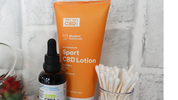What Does the New DEA Rule Mean For the Hemp Industry?

Hemp farmers and businesses saw a huge victory on Capitol Hill with the passage of the Agriculture Improvement Act of 2018, popularly known as the "Farm Bill." The bill established a much-needed differentiation between hemp and cannabis — excluding hemp and its extracts from Schedule I drug classification at the federal level. This proved to be a defining boon not only for hemp, but for derivative enterprises such as CBD businesses and sellers of wholesale terpene oils.
However, in late August this year, the U.S. Drug Enforcement Administration (DEA) published an interim final rule seeking "to codify statutory amendments to the Controlled Substances Act made by the Farm Bill." In it, the DEA ruled that any and all hemp extracts cannot automatically be exempted from Schedule I drug classification, particularly if they exceed the 0.3 percent delta-9-tetrahydrocannabinol (THC) limit.
The rule effectively asserts that extracts or byproducts failing to fall below the delta-9-THC limit do not meet the definition of hemp.
Here's why that's a problem: during the manufacture of hemp-sourced products, hemp plant material undergoes an extraction process wherein it's virtually impossible to monitor or consistently maintain delta-9-THC levels below 0.3 percent.
Typically, hemp is extracted, processed, and then refined into a final product — diluted down to 0.3 percent or below — before ever making it to market. However, the language of the DEA's new rule mandates that no hemp cannabinoid, extract, or derivative must ever exceed the delta-9-THC limit at any point in the manufacturing process.
The interim final rule took effect on August 21 and allowed sixty days for public comments. If left unchallenged by lawmakers, the DEA stands to unilaterally cripple multiple billion-dollar industries by classifying non-psychoactive hemp extracts as controlled substances.
How Would This Affect the Hemp & CBD Industries?
Prospectively, the biggest losers from a backdoor rescheduling of hemp extracts by the DEA would be processors and growers — particularly small hemp farms. Virtually all processors have oriented their facility protocols and spent significant amounts of money based on the language of the 2018 Farm Bill.
Similarly, countless agricultural businesses produce high-cannabinoid hemp seeds for farmers looking to grow high-CBD hemp biomass. Illegalizing compliant end products for instances where work-in-progress hemp extracts (WIPHE) occasionally reach the delta-9-THC potency threshold would be a punishing blow to both enterprises.
Most major companies within the CBD industry already steer clear of cannabis to avoid regulations related to the federal drug scheduling system, instead opting to source exclusively from hemp. However, both the isolation and concentration processes for CBD dramatically increase the concentration of all cannabinoids in a given extract, including THC. This means the DEA's interim final rule would essentially wreck two critical components of the CBD industry: their ability to source high CBD biomass from hemp farms for producing isolates or concentrates, and the legality of CBD end products due to the THC threshold possibly being passed at any point in the manufacturing process.
Does it Constitute Regulatory Overreach?
Hemp farmers and businesses were quick to express concern over the DEA's new rule, along with several players in the CBD space. The Hemp Industry Association was among the first to make a statement, emphasizing that the Farm Bill defined hemp as "any part of the plant, including the seeds thereof and all derivatives, extracts, cannabinoids, isomers, acids, salts, and salts of isomers, whether growing or not" with a THC concentration of not more than 0.3 percent.
The association pointed out that "the DEA is not a legislative body, and has no power to rewrite laws established by Congress and duly signed by the President of the United States.” Both the association and hemp CBD company RE Botanicals have since petitioned the DC Circuit Court for review, in a case that's still ongoing.
Likewise, the DEA’s proposed rules include the removal of restrictions on importing and exporting hemp and its derivatives. “This rule would actually have a positive impact and hopefully open the borders to a more global market. However, this is not a decision that the DEA should be making since hemp should no longer be within their jurisdiction,” says Bluebird Botanicals CEO Brandon Beatty. “As long as products and the hemp they’re made with are below .3% THC, many industry leaders are of the opinion that the DEA should not have any say in importing and exporting guidelines.”
A Need for Clarification
The DEA's interim final rule has managed to draw the attention of lawmakers on Capitol Hill as well. Senators Ron Wyden and Jeff Merkley of Oregon wrote a letter to the agency in October, pointing out that the 2018 Farm Bill specifically defined hemp's THC content on a dry weight basis "because dry weight measurements are commonly taken from the initial hemp plant and final hemp-derived product." This was to allow a reasonable degree of leeway for hemp extracts in intermediary stages of production.
Days after the Oregon senators sent their letter, nine Congressional representatives sent the DEA one of their own, urging the agency to "specify their requirements and streamline hemp directives by clarifying the legal means of processing hemp products." The House members emphasized that in its current language, the DEA's new rule arbitrarily places hemp producers and farmers at risk of violating the Controlled Substances Act.
The DEA’s interim rule is now proceeding through a public comment period, and hopefully with enough feedback, the agency will adjust its proposed definition of cannabis to allow hemp products to temporarily exceed the THC limit at certain points during the manufacturing process. As of this writing, the DEA has yet to release a revised version of its rule on hemp extracts.
Article courtesy of Eric VanBuskirk.









